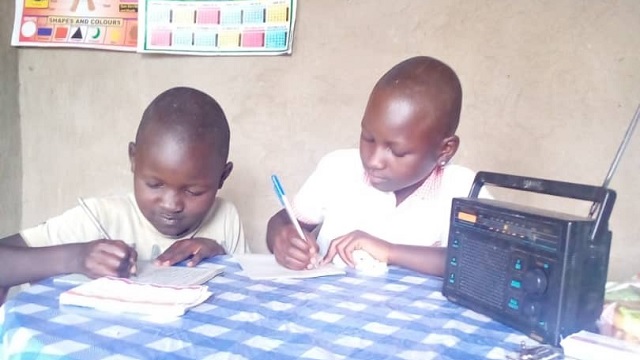
Kampala, Uganda | THE INDEPENDENT | While governments continue mooting for alternative schooling in the wake of coronavirus (COVID-19) that led to the closure of schools, the UN Children’s Agency-UNICEF says that tens of millions of children in Eastern and Southern Africa will not be reached.
The agency says that while they have already supported 21 governments with more than USD 5.4 million for remote learning and preparedness for school re-opening, radio as the preferred medium for delivering lessons only reaches four in ten children across East and Southern Africa.
They equally note only 22 percent of the households in the two regions have access to the internet whereas 84 percent of the rural population where the bulk of the learners reside have no electricity. The other means that UNICEF has been supporting countries with apart from radio are SMS and printed materials which all were planned to last until this week.
However, they say more than 127 million pre-primaries, primary and secondary school students in Eastern and Southern Africa – who are supposed to return remain at home due to the continued transmission of the acute respiratory infection creating an urgent need for more financial support into the education crisis.
“COVID-19 has triggered an education crisis that is unprecedented in scope, duration and impact,” said UNICEF Regional Director for Eastern & Southern Africa, Mohamed M. Malick Fall. He asks that governments, business and parents must come together to ensure inclusive, realistic and scalable ways that reach all children.
In an earlier statement, UNICEF, World Food Programme, UNESCO together with the World Bank were advocating for the safe re-opening of schools warning that their continued closure creates a risk for some children to not ever return to school. They also issued guidelines for reopening with recommendations on physical distancing and hand hygiene.
“Rising inequality, poor health outcomes, violence, child labour and child marriage are just some of the long-term threats for children who miss out on school,” said Henrietta Fore, UNICEF Executive Director. “We know the longer children stay out of school, the less likely they are to ever return. Unless we prioritize the reopening of schools, we will likely see a devastating reversal in education gains”, she said in an earlier statement.
******
URN
 The Independent Uganda: You get the Truth we Pay the Price
The Independent Uganda: You get the Truth we Pay the Price



